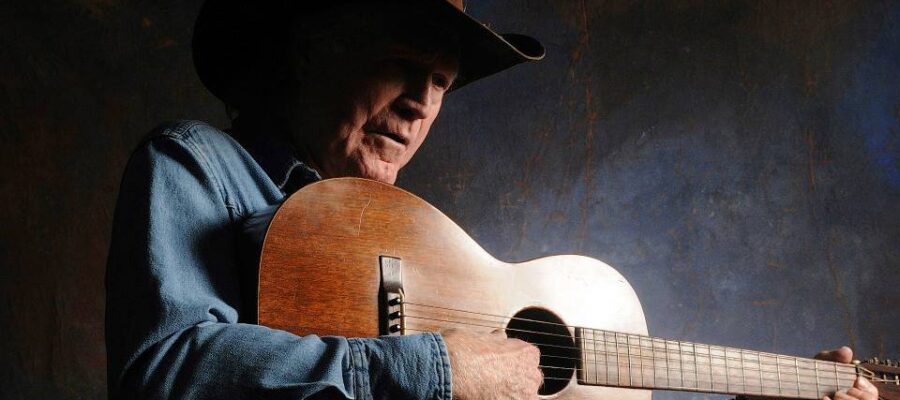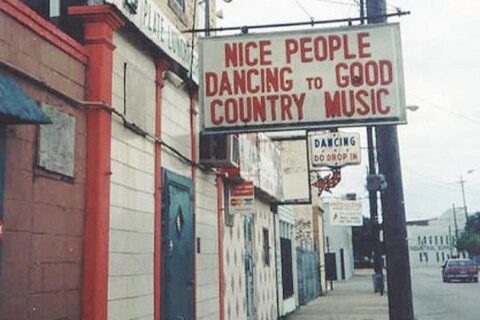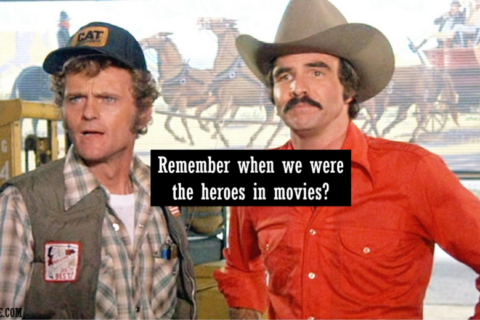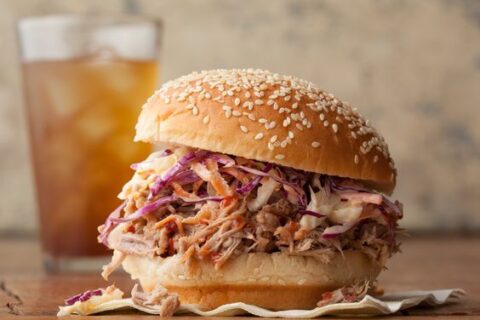I had been thinking of writing a piece about Tyler Childers’ late defection to the other side, but after hearing a couple of months ago the news of the songwriting and outlaw legend Billy Joe Shaver’s death, I decided I would focus instead on someone worth remembering.
Billy Joe Shaver was, in many ways, the unsung hero of the explosive 1970s Outlaw County movement. He wrote many of the big hits, and worked hand in glove with Waylon Jennings (most prominently) and many other artists to push the movement further and bigger.
I was very privileged in that I was raised in a household that understood great music, popular or not. My father had a cassette tape of Billy Joe Shaver’s Tramp On Your Street that I remember, especially the title track, which was about Billy Joe witnessing our patron saint Hank Williams perform, and his explanation of how Hank’s lifestyle was something to be noticed and understood.
Billy, himself, grew to fill the same role, in many ways. He was born on August 16, 1939 in Corsicana, Texas. He grew up hard, his father leaving the family before he was even born. He spent much of his early life with his grandmother (his father’s mother) whilst his mother worked at a local nightclub. This was likely his first exposure to the music scene.
He did a bit of everything: picked cotton, joined the Navy at 17, and hitchhiked and ended up in Nashville. All these things are readily available to look up online; but one of the more notable events of his life was when he took a job in a sawmill. Eventually, he ended up losing the better part of his index and middle finger of his dominant hand in an accident.
Shaver grew to fame in the 1970s when he partnered with Waylon Jennings (in a memorable moment where he threatened to whip Waylon in front of “God and everybody,” in Shaver’s own words), leading to Waylon agreeing to listen to “one song” and that being the end of their partnership. Instead, after hearing one, and then another of Shaver’s songs, Waylon decided to partner with him.
Shaver wrote many tunes, and went on to add luster to not only Waylon Jenning’s fame, but his own, as an unsung hero (in many ways) of the outlaw movement. But, sadly, his personal life would be marked by the tragic events that he often sang about. Shaver lost his wife and mother to cancer in 1999. These two blows were tremendous to him, but what followed was even more so.
Shaver and his wife had an on-again, off-again relationship, and they had one child, John Edwin ‘Eddy’ Shaver, born June 20, 1962. Eddy would grow to be a great guitarist, tutored by none other than Dickey Betts of Allman Brothers fame. He and Billy would record some great music together, in which he would showcase his own phenomenal talent. Eddy was a legend in his own right, but he died of a heroin overdose on December 31, 2000.
I saw Billy Joe perform in Northwest Arkansas, opening for Willie Nelson, in the late 2000s with my family. Since I grew up knowing who he was, it helped make the experience memorable, but his performance left me awestruck. One thing I will never forget was how he let the band die down after a song and announced to audience that he had a son, and called Eddy by name, and said (without any kind of sugar coating) that he had died of a heroin overdose on New Year’s Eve. He then said that he wrote the following song for him, “Star Of My Heart,” and proceeded to perform it with a style that would make a statue weep.
He told happy stories and got the crowd laughing, then bring them back down to reality. Not sorrow, per se, but reality, nonetheless.
His show was a rollercoaster, a great one, one of the best that my young eyes have ever seen, for certain. He was a world class songwriter who could tell the common man’s tale in the same way he penned cowboy ballads. We all understood life, Shaver put it into song.
I still well remember buying his albums and being amazed that there wasn’t a “bad” song amongst them. He sang from the heart and meant it. His music was our music. He lived, loved, and dealt with life and loss as any of us would. He was just blessed with a way to tell it in song.
He wrote songs about a magnolia tree his mother planted (“Magnolia Mother’s Love“), he wrote about his early life and his grandmother (“Corsicana Daily Sun“), he wrote about the cowboy lifestyle (“Aunt Jessie’s Chicken Ranch“), and he wrote about loss and the way he recovered (“Day By Day“).
But, perhaps, most of all he wrote of his ultimate redemption and his belief in another place. Billy Joe Shaver was not just an outlaw artist who pandered to a demographic to make money and get ahead in life. He was much deeper than that.
Billy Joe was a true Southern artist, one who had the knack for writing about what he saw, lived, and felt; about life and all its shortcomings and blessings. About love, loss, joy, sorrow, and triumph over all these things.
My father met him in a bar in Arkansas one night, after watching him play a show. I still have pictures of them together. My father said that they talked, ‘Just like you and me talkin.’ I wouldn’t have had it any other way.
Billy Joe Shaver left this world after a stroke on October 28, 2020 in Waco, Texas.
He will forever be remembered.
I’m gonna live forever, I’m gonna cross that river, I’m gonna catch tomorrow now.
Billy Joe Shaver
-By T. Holt

O I’m a good old rebel, now that’s just what I am. For this “fair land of freedom” I do not care at all. I’m glad I fit against it, I only wish we’d won, And I don’t want no pardon for anything I done.






Thank you for a fine essay.
Looking up the man now…
I was only aware of him bc of his Live Forever song which entranced me the first time I heard it on my Highwayman cassette. Then years later I got on YouTube. Here is an old vid where he confesses his faith.
https://youtu.be/psvV10pohMw
This is one of my favorite Shaver songs — The Git Go
https://www.youtube.com/watch?v=jNppnLZx86Q